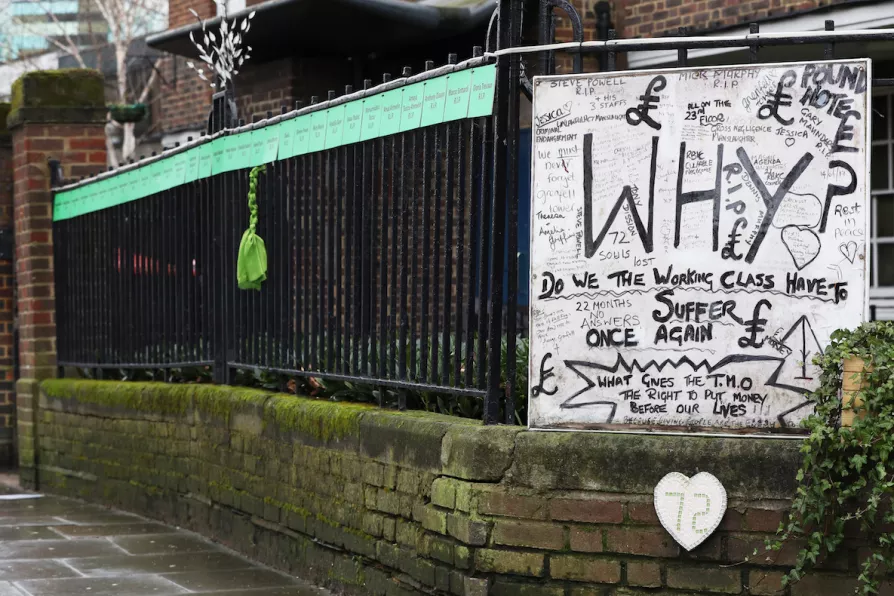Marco Rubio views 1945 as a defeat for the West, wants to revise the post-war order, while German ministers lead the standing ovation. SEVIM DAGDELEN reports

 A piece of green ribbon hangs from a railing in Silchester Road which bears placards of all of the names of the victims of the fire.
A piece of green ribbon hangs from a railing in Silchester Road which bears placards of all of the names of the victims of the fire.
IN THE early days after the Grenfell Tower fire, after I had been interviewed as the very new MP for Kensington numerous times and had written about it for various publications, I was accused by senior Tories in Kensington and Chelsea Council of “politicising” the fire.
The idea that this terrifying and multifatal catastrophe at the end of my road was somehow a politically neutral event, some kind of misfortune or natural disaster, not man-made, was circulated vigorously.
They said “tragedy” (sad face). The community said “atrocity” (angry face).

It is time to stop tolerating the governing elites incompetence which makes our lives a daily misery, argues MATT KERR

As we approach the half-anniversary of the Grenfell tragedy, the community gathers to remember loved ones while grappling with mixed emotions surrounding the ongoing deconstruction of the tower and the hopeful plans for a memorial, writes EMMA DENT COAD

Rather than hoping for the emergence of some new ‘party of the left,’ EMMA DENT COAD sees a broad alliance of local parties and community groups as a way of reviving democratic progressive politics










